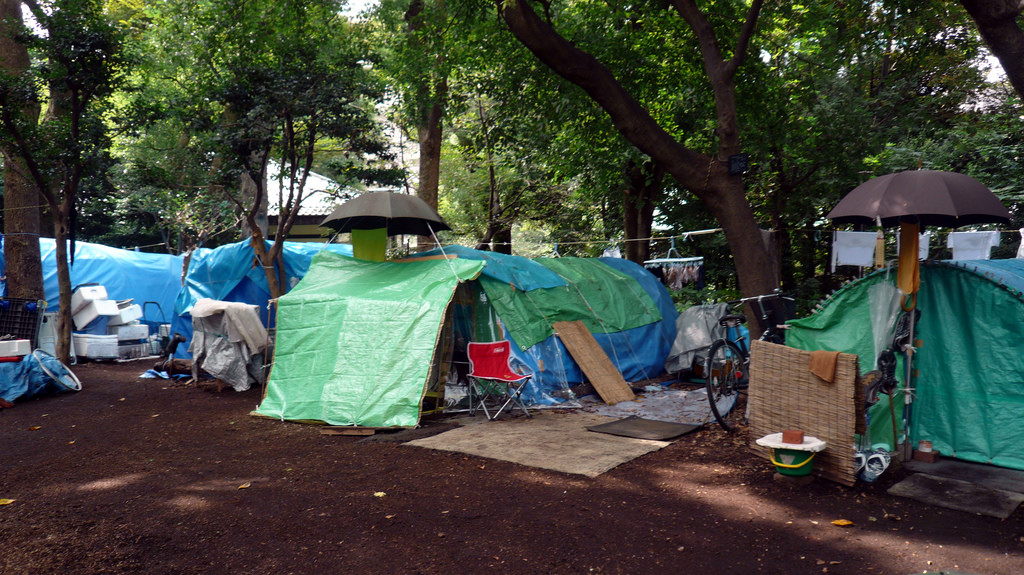Khalid Rawashdeh interacts with the homeless community on a daily basis. An employee at Hana’s Corner, a deli and grocery store on 10th and K streets, he sometimes must ask indigent men and women to leave the store if their odor is too much for other patrons to bear.
But he also talks with homeless Sacramentans. He finds out where they’re from and how they came to town. And on some days, when leaving work, he gets to take “mistake” sandwiches and hand them out to hungry folks.
Rawashdeh is perhaps the very kind of Sacramentan who might be interested in dialogue surrounding California’s proposed Homeless Person’s Bill of Rights and Fairness Act, introduced by Assemblyman Tom Ammiano.
Backers of this bill say that its central purpose is to affirm homeless Californians as citizens protected by basic human rights. But certain language in the bill’s first draft left detractors thinking long and hard about where and how the homeless can drop trou.
Critics include The Sacramento Bee editorial board, who—in a recent opinion piece titled “Ammiano bill on homeless is an embarrassment”—painted a colorful picture of what could be in store if the bill becomes law. The Bee envisioned a fictional homeless man, Tom A. (get it?), living outside a local coffee shop, panhandling and urinating on the sidewalk.
“He’s a turn-off for customers,” the opinion read, “but the proprietor is powerless to interfere with Tom” under the proposed law.
Law enforcement also wouldn’t be able to stop these hypothetical out-of-control homeless Californians. In fact, detractors say that Ammiano’s bill, as written, would basically allow homeless residents to do as they please—from peeing to panhandling—anytime, anywhere.
According to the San Francisco assemblyman this is, of course, not the bill’s intent.
“The thrust of the bill is recognition that homeless people have the same rights and need the same things as other people,” Ammiano told SN&R. “You cannot criminalize people for not being housed.”
Ammiano said that there is no intention and no language in the bill that says bad behavior should be tolerated or condoned.
Indeed, most of the proposed legislation is fairly uncontroversial. But there is one paragraph in particular that editorial boards across the state have found particularly disturbing. This excerpt would protect the homeless community in carrying out certain “life-sustaining activities” outdoors without harassment from law enforcement, including “eating, congregating, possessing and storing personal property, urinating, or collecting and possessing goods for recycling, even if those goods contain alcoholic residue.”
Critics of the bill believe that, as written, this paragraph could allow for unfortunate loopholes in state and local laws. But the bill is new, and proposed legislation can undergo multiple rounds of edits.
After a call with Ammiano’s office, for instance, SN&R found that the paragraph in question has since been removed.
Local civil-rights attorney Mark Merin still believes that at least a portion of the bill’s provisions will pass.
“I think that there are very important aspects to the bill that will resonate with the legislators,” he said.
This includes provisions such as adding the term “housing status” to the list of protected conditions under the state’s Unruh Civil Rights Act, or making it legal for someone without a bed for the night to sleep in his or her vehicle.
“It’s not that you’re entitled to urinate in public; it’s that there should be bathrooms for the public to use,” explained Merin. “It comes down to human needs.”
